Poultry farming is a major agricultural activity in Nigeria. The country has a large population and a growing demand for poultry products. Nigeria is Africa’s largest producer of eggs and the second-largest producer of chicken meat. The industry employs millions of people and contributes significantly to the country’s economy.
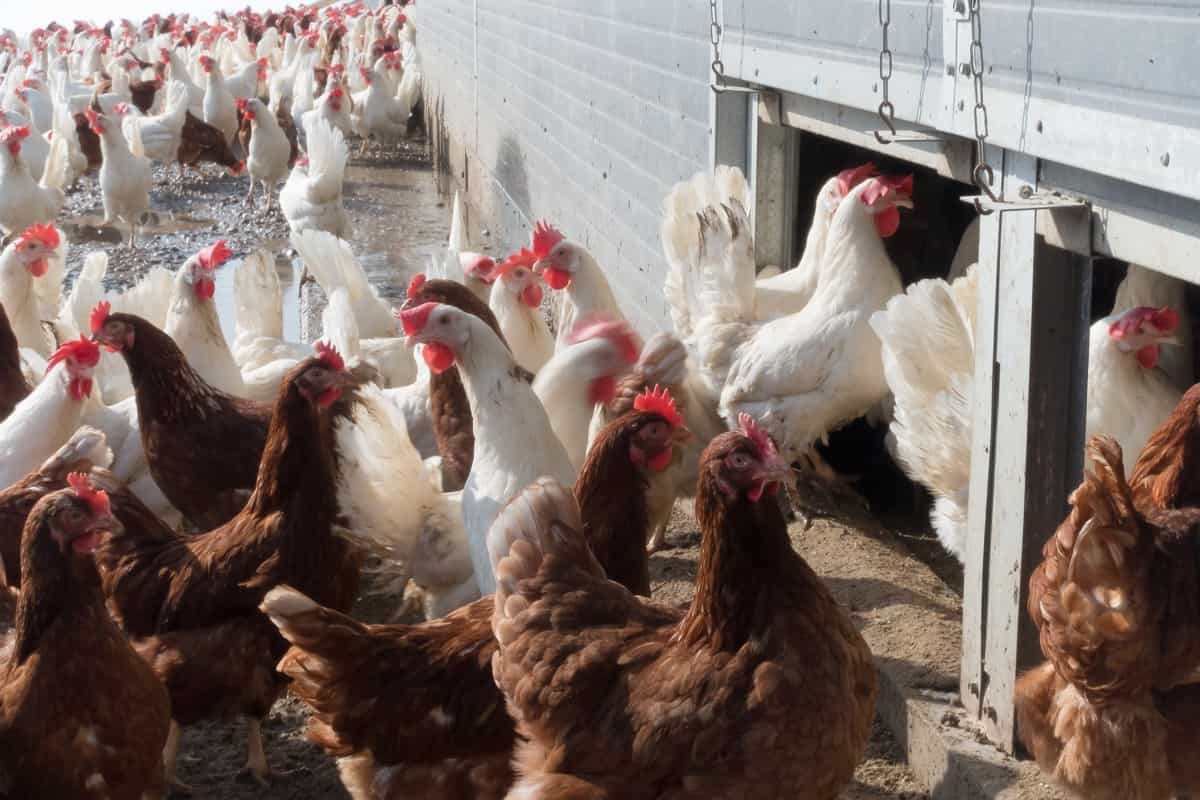
How to start a poultry farming in Nigeria
What is poultry farming in Nigeria?
Poultry farming in Nigeria is raising chickens, ducks, turkeys, and other poultry for meat or eggs. Chickens are the most common poultry raised in Nigeria and can be raised for meat or eggs. Geese are the least common poultry raised in Nigeria.
Choosing the type of poultry bird to rear in Nigeria
The common poultry birds raised by poultry farmers include chicken, turkey, duck, geese, quail, pigeon, and guinea fowl. Chicken is the widely consumed bird in Nigeria, making it an appropriate choice for farmers who want to take benefit of the growing poultry meat and egg demand in Nigeria; Turkey is a close second.
If you prefer a market with less competition, you can rearing quails, pigeons, or ducks. You will also need to consider the climate in Nigeria when choosing the type of bird to rear. Some types of poultry birds do not do well in hot climates, so it is important to choose a bird that can withstand the climate conditions in Nigeria.
Steps to start a poultry business plan in Nigeria
- Choose your poultry niche: You can start many poultry businesses in Nigeria, so it’s important to choose the right one. Do the research and decide which poultry farming would be the most profitable for you.
- Get started with a business plan: A good poultry business plan is essential for any successful business, especially for a poultry business. Outline your goals, objectives, and strategies for your poultry farm and ensure you have a solid financial foundation.
- Choose the right location: The success of your poultry farm will largely depend on its location. Make sure you choose a location convenient for transport and have access to good-quality water and land.
- Build or buy your farm: Once you’ve chosen your location, it’s time to start building or buying your farm. If you’re building your farm, follow all the necessary construction regulations. If you’re buying an existing farm, ensure it meets all the requirements for a successful poultry operation.
- Stock your farm: Now it’s time to start stocking your farm with birds. This is where much of the cost associated with starting a poultry business comes in, so make sure you purchase healthy birds
In case you missed it: Poultry Farming in the Philippines: How to Start, Breeds, Subsidy, Loans, and Profits
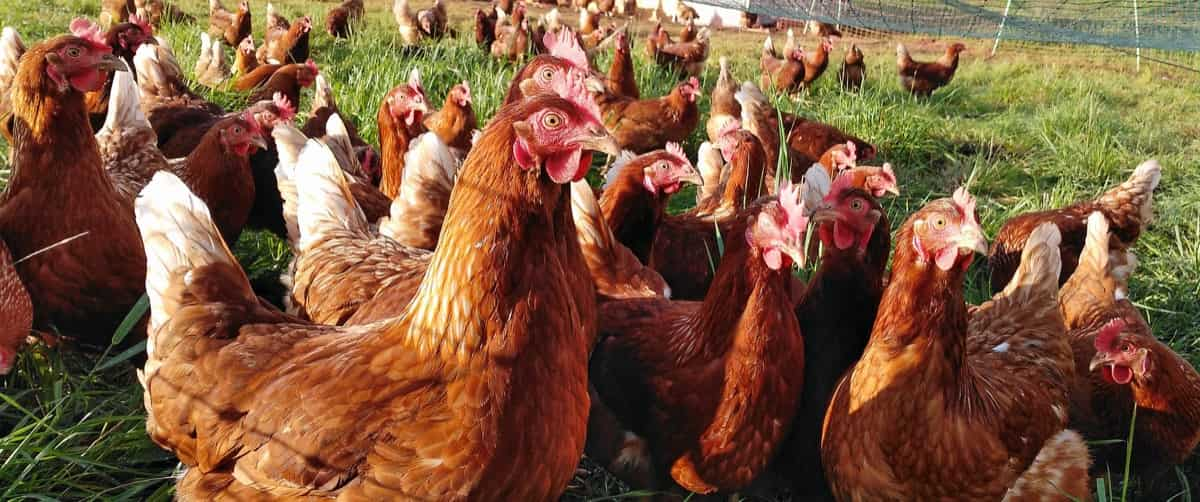
Selecting a suitable location for poultry farming in Nigeria
- Several factors are considered for selecting a location for a poultry farm in Nigeria. The first factor is climate. The climate in Nigeria is generally hot and humid, which is ideal for chicken production. However, certain areas of the country experience periods of drought, which can impact poultry production negatively.
- The second factor to consider is proximity to markets. Poultry farms need to be located near markets where they can sell their products easily. Transport costs will eat into profits if the farm is too far from the markets.
- The third factor to consider is land availability and quality. Poultry farms require a lot of land for chicken housing and grazing areas. The land should also be of good quality to support chicken production effectively.
- When selecting a site for a poultry farm in Nigeria, it is important to consider these three factors carefully. Doing so can ensure that your poultry farm has the best chance of success.
Providing good housing for poultry farming in Nigeria
- One popular type of housing for poultry farms in Nigeria is the A-frame chicken coop. These coops are simple to construct and can be made from locally sourced materials. They provide a safe and secure environment for your birds and can be easily expanded as your flock grows.
- Another option for housing your poultry in Nigeria is to use an existing building on your property, such as a shed or outhouse. If you select this option, it is important to ensure that the building is well-ventilated and has plenty of light. You will also need to protect your birds from predators by installing wire mesh over all windows and doors.
- Regardless of which type of housing you choose for your poultry farm in Nigeria, keeping it clean and well-maintained is important. Regular cleaning and disinfection will help prevent disease spread and keep your birds healthy and productive.
Feeding and caring for the poultry birds in Nigeria
Commercial feeds are generally more expensive than locally produced feeds, but they are also more nutrient-rich and improve the health of your birds. If you decide to use commercial feeds, follow the manufacturer’s recommendations on how much to feed your birds. Locally produced feeds are often cheaper than commercial feeds but may not be as nutrient-rich.
In case you missed it: Raising Kadaknath Chickens (Black Chicken) in India: Check How this Guide Helps Profitable Kadaknath Poultry Farming from Scratch
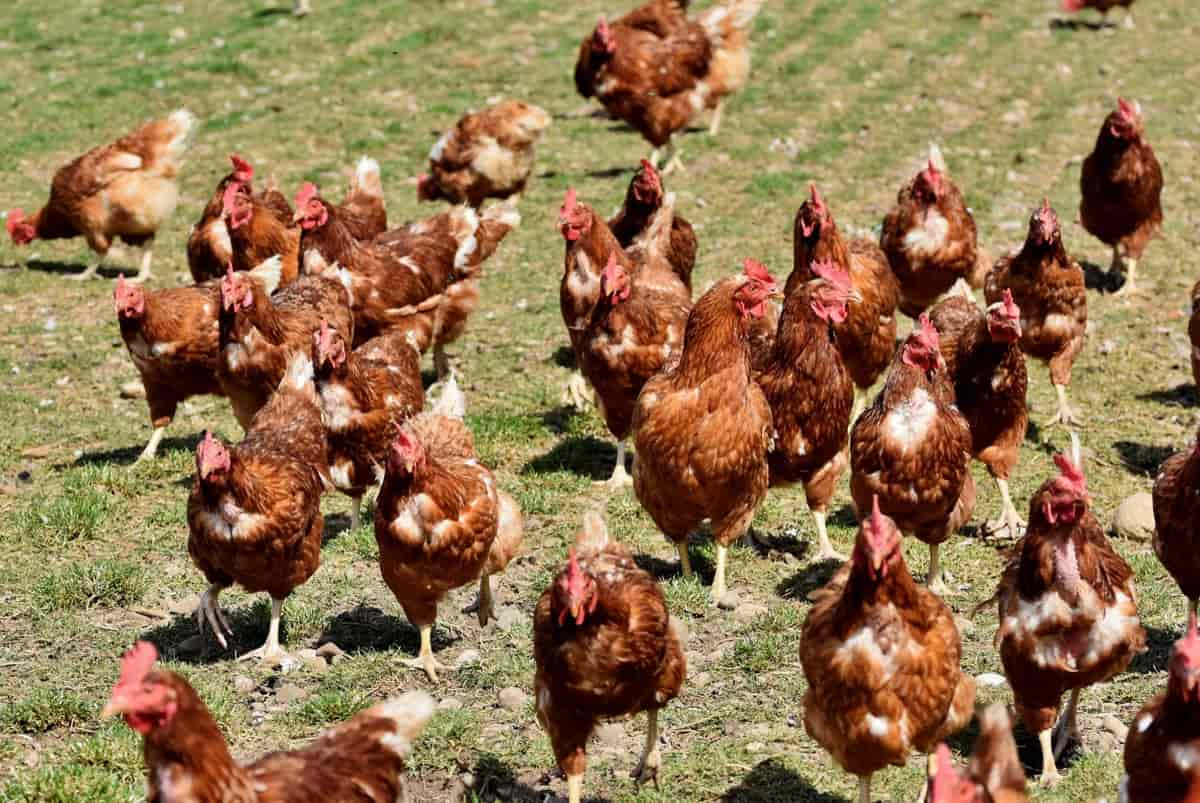
You will need to experiment with different types of locally produced feeds to find one that works well for your birds. No matter what feed you use, it is important to provide fresh water for your birds. Water helps them stay hydrated and aids in digestion. Be sure to clean and refill water containers regularly to prevent the spread of disease.
Small-scale poultry farming in Nigeria
Small-scale farmers have many opportunities to get involved in poultry farming, from raising chickens for eggs to meat production. The first step in starting a small-scale poultry farm is to choose the type of poultry you want to raise. Chickens are the most common choice, but you can raise turkeys, ducks, or geese. Once you’ve decided on the type of poultry you want to raise, you’ll need to purchase some baby chickens or other young birds. You can buy these from a local hatchery or online.
After you’ve obtained your baby chickens, you’ll need to set up a brooding area where they can stay warm and safe while they grow. A simple brooding set-up can be made using a cardboard box and a heat lamp. Once your baby chickens have outgrown the brooding area, they can be moved into a larger coop or pen. As your birds grow, you’ll need to provide them with food and water. A good diet for chickens includes grain, greens, and chicken feed. You can either grow your food for them or purchase it from a local feed store. Water must be available at all times and should be changed regularly.
Poultry breeds available in Nigeria
- The Kadaknath chicken is a native breed known for its black plumage. These birds are typically used for meat production.
- The White Leghorn is a popular egg-laying breed that originates from Italy. These birds are white and are known for their high egg production.
- The Rhode Island Red is another popular egg-laying breed in many commercial operations. These birds are red and are known for their high egg production.
- The Sussex chicken is a dual-purpose bird that can be used for both meat and egg production. These birds are typically brown or red and originate from the United Kingdom.
Poultry farming areas in Nigeria
There are many poultry farming areas and locations in Nigeria. The main poultry farming areas are in Kaduna, Oyo, Osun, and Lagos. There are also smaller poultry farms in other regions of the country. Nigeria has many poultry farming areas, but the three main regions are the Northern, Central, and Southern parts.
In case you missed it: How to Start Poultry Farming from Scratch: A Detailed Guide for Beginners
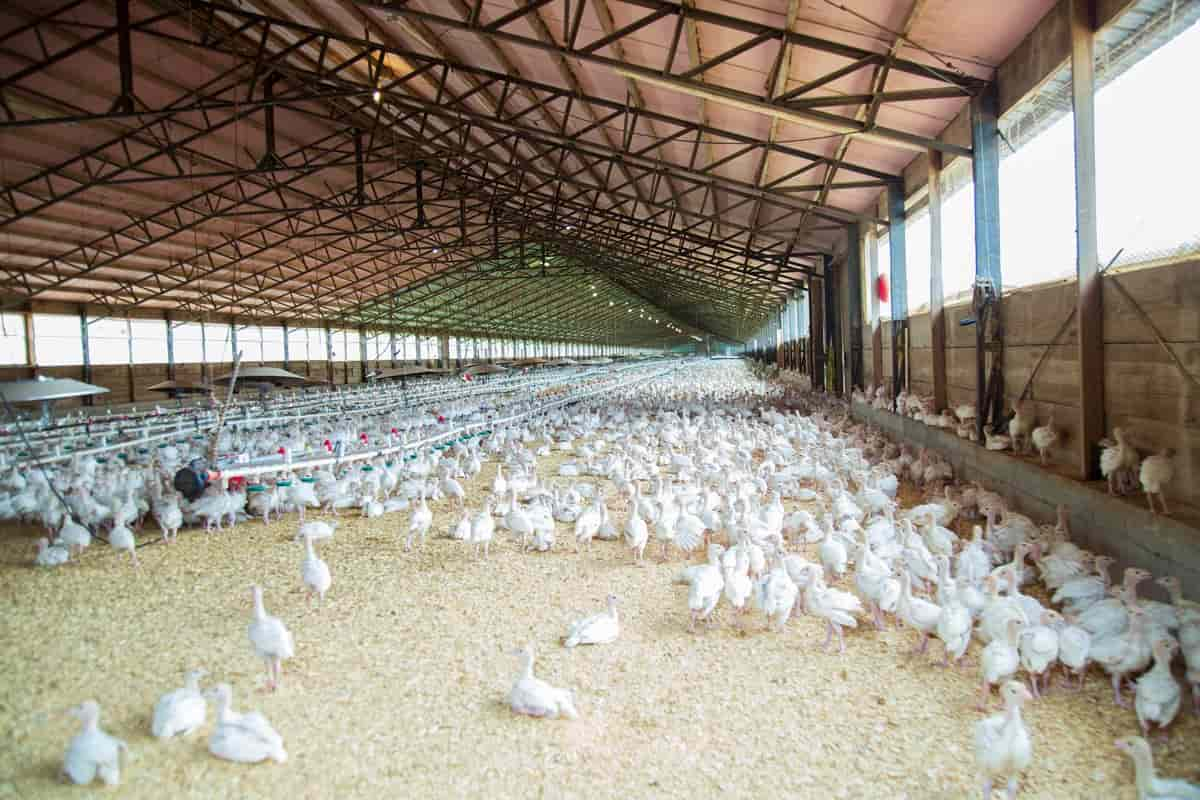
- The Northern region is home to the majority of Nigeria’s chicken farms. This area has a more temperate climate, which is better for chicken production.
- The Central region is also a key area for poultry farming, as it contains the country’s capital, Abuja. This region has a hot climate, which can be tough on chickens, but many large-scale operations have overcome this challenge.
- The Southern region has a tropical climate and is home to some of Nigeria’s biggest commercial broiler farms. This area presents challenges for chicken farmers, but there is still good potential for success.
There are approximately 1,500 poultry farms in Nigeria, with the majority being small-scale operations. Over two million Nigerians are employed in the poultry sector. Poultry farms vary in size from small family-run operations to large commercial farms. The Nigerian government offers incentives for investors interested in starting or expanding a poultry farm. These incentives include tax breaks and access to low-interest loans. The government also provides training and extension services to farmers.
Poultry production methods in Nigeria
- Intensive poultry production is the common method, requiring less land and capital investment. Birds are typically housed in overcrowded conditions and given little outdoor access. They are also fed a high-protein diet to promote rapid growth. While this method of production can be profitable, it often results in lower-quality meat and eggs due to the stressful living conditions of the birds.
- Extensive poultry production is less common but is seen as more humane. Birds are given more space to move around and typically have access to the outdoors. They are also fed a more natural diet, which results in higher-quality meat and eggs. However, this method of production is less profitable due to the higher costs associated with it.
Is poultry farming profitable in Nigeria
Poultry farming is a lucrative business that supplies the demand for chicken and eggs in Nigeria. One of the best ways to ensure profitability in poultry farming is to keep your chickens healthy. This means vaccinating them against common diseases and providing them with regular veterinary care.
Good husbandry practices for Nigeria poultry farmers
One of the most important things a poultry farmer in Nigeria can do to ensure the health and productivity of their flock is to practice good husbandry.
1. Keep your birds clean and healthy – Regularly clean and disinfect your bird pens, coops, and equipment. This will help prevent the spread of disease among your flock.
2. Provide fresh, clean water at all times – Make sure your birds have access to clean water. This is essential for their health and well-being.
3. Keep your birds well-fed – A healthy diet is essential for your birds’ growth and development. Be sure to provide them with a balanced diet with all the necessary nutrients.
4. Give your birds plenty of space – Birds need plenty of space to move around and exercise. If possible, allow them access to an outdoor area where they can stretch their wings and explore.
5. Monitor your birds closely – Keep a close eye on your birds’ health and behavior. If you notice anything unusual, contact a veterinarian immediately.
6. Vaccinations and other medical supplies – Keeping your birds healthy is crucial to the success of your poultry farm. Vaccinations and other medical supplies can add significant costs to your budget, but they are essential for preventing disease and ensuring high productivity levels.
7. Biosecurity on your poultry farm – Last but not least, you need to be careful about biosecurity on your poultry farm. This means taking measures to prevent the spread of diseases between your chickens and other animals or humans. Some simple steps include maintaining cleanliness, disinfecting equipment, and restricting visitors to your farm to prevent the spreading of diseases.
In case you missed it: Poultry Farming in Nepal: How to Start, A Step-By-Step Guide for Beginners
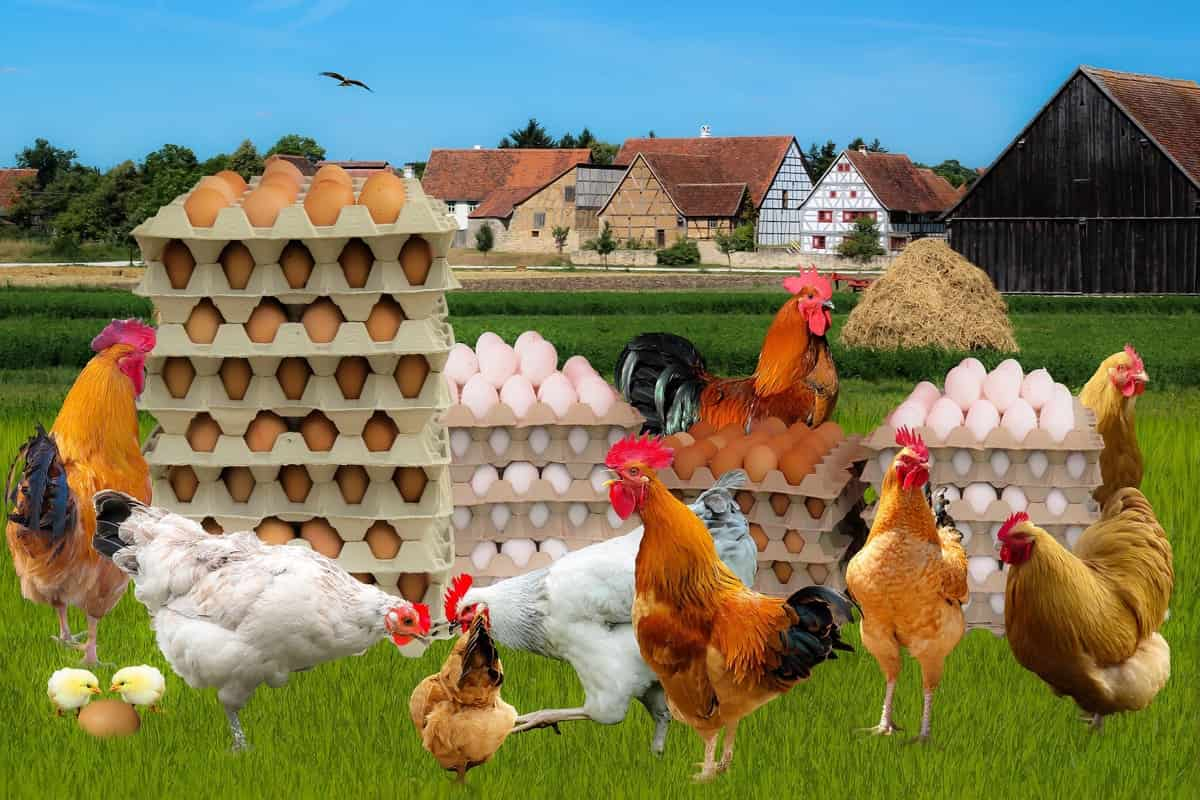
Poultry farming loans and subsidies in Nigeria
The poultry farming industry in Nigeria is the most lucrative business. Poultry farming loans and subsidies are available from various financial institutions in Nigeria. The interest rate on these loans is relatively low, making them affordable for small-scale farmers. The Nigerian government also provides subsidies for poultry farmers who meet certain criteria. These subsidies can cover up to 50% of the cost of poultry production, making poultry farming a viable option for small-scale farmers in Nigeria.
Poultry farm problems in Nigeria
Poultry farming in Nigeria can be lucrative, but farmers face common problems. One of the most common problems is finding reliable staff to help run the farm. Another common problem is disease outbreaks. These can occur when birds are not appropriately vaccinated or come into contact with wild birds.
Infectious diseases such as Newcastle Disease and Avian Influenza can quickly spread through a flock and decimate a farm’s population. Finally, another challenge that poultry farmers face is theft. This is particularly common in rural areas where farms are often left unattended for long periods.
Poultry farming challenges in Nigeria
One key challenge facing poultry farmers in Nigeria is disease control. Outbreaks of avian influenza have caused significant losses for the industry in recent years. However, with proper biosecurity measures in place, such outbreaks can be prevented.
- The high cost of day-old baby chickens: Day-old baby chickens can be expensive if you buy from a reputable breeder. This makes it difficult for small-scale farmers to get started in the business.
- The risk of disease: Poultry farms are susceptible to diseases such as Newcastle Disease and Avian Influenza, which can kill entire flocks. Strict biosecurity measures must be implemented to minimize the risk of disease outbreaks.
- The need for specialist knowledge: Poultry farming requires specialist knowledge and skills, which can be difficult to acquire. There is also a lack of extension services and technical support available to poultry farmers in Nigeria.
Despite these challenges, poultry farming in Nigeria can be profitable if done correctly. With a growing population and increasing demand for chicken meat and eggs, there is great potential for growth in the Nigerian poultry industry.
Set-up cost to start a poultry farming business in Nigeria
You can start a small-scale poultry farming business in Nigeria with less than N150,000. Medium to large-scale farms need a lot more money, but starting a small poultry business is advisable even if you have more than enough funds to spare.
Profit for poultry farming business in Nigeria
To calculate the profitability of poultry farming in Nigeria, you will need to consider the following factors:
- The cost of feed per bird
- The number of birds you plan to raise
- The price you plan to sell your chicken at
- The cost of any other necessary supplies (such as housing and water)
In case you missed it: Poultry Farming in New Zealand: Breeds, How to Start
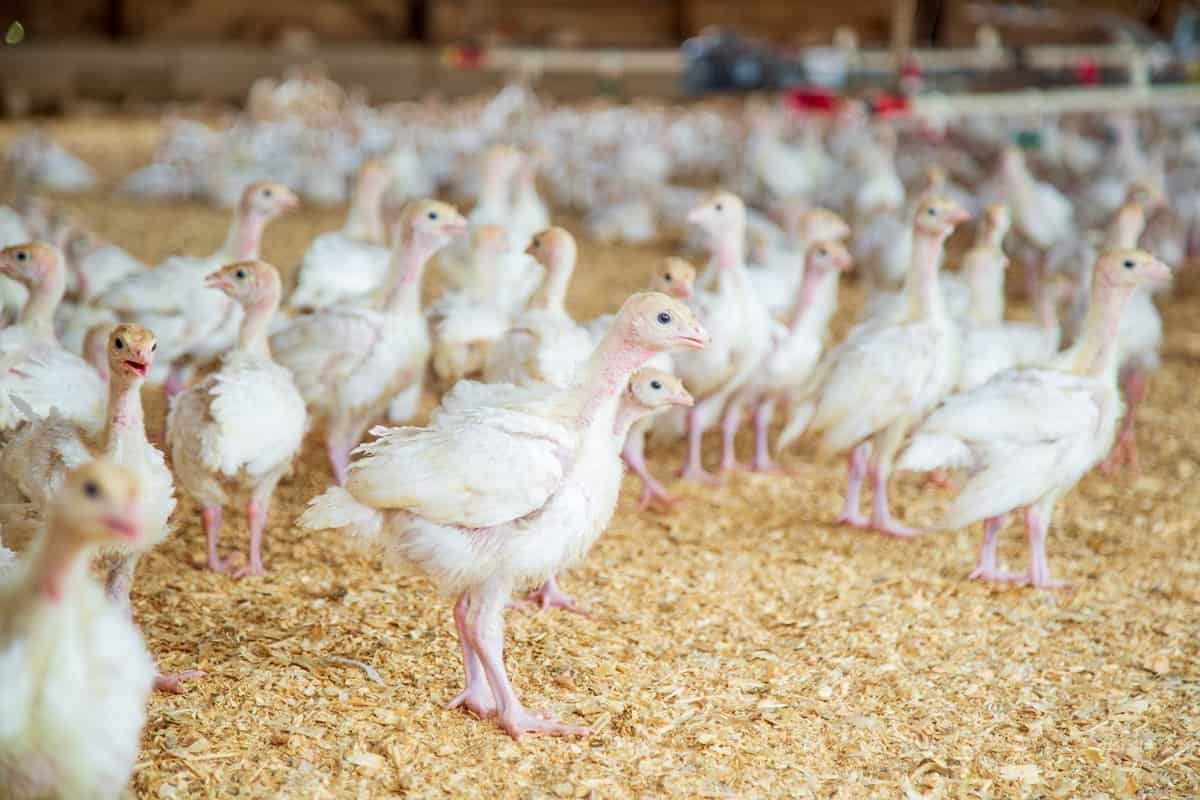
The average poultry farm set-up cost in Nigeria is about N150,000. This cost includes the purchase of day-old baby chickens, equipment, and other materials needed to get started. Commercial poultry farm set-up costs in Nigeria can be as high as N1 million. The average profit from a poultry farm in Nigeria is about N50,000 per month. This profit can be increased by selling eggs and meat at higher prices or by reducing the cost of production through better management practices.
Organic poultry farming in Nigeria
Organic poultry farming in Nigeria is a type of farming where chickens are raised without antibiotics or other growth-promoting drugs. Chickens are fed an organic diet and are provided with ample space to roam and forage. Organic poultry farmers in Nigeria must meet the standards the Nigerian government sets to be certified. These standards include providing chickens with a clean and comfortable environment, access to fresh air and sunlight, and a nutritious diet.
Farmers must also avoid using any synthetic pesticides or herbicides on their farms. Organic poultry farming in Nigeria is still relatively new, but it is growing in popularity as more people become aware of the benefits. Consumers are willing to pay more attention to organic chicken meat because they know it is better for their health and the environment. Poultry farmers who switch to organic production can expect higher profits as demand for their product increases.
Conclusion
Poultry farming provides employment for many people and contributes to the economy. Poultry farming generally requires less land and capital than other livestock farming ventures, making it a more accessible option for small-scale farmers. Poultry farming is an important agricultural activity in Nigeria. It provides a source of income for small-scale farmers and contributes to the country’s food security.
- Types of Pesticides Used in Agriculture: A Beginner’s Guide
- Economical Aquaculture: A Guide to Low-Budget Fish Farming
- 15 Common Planting Errors That Can Doom Your Fruit Trees
- How to Make Houseplants Bushy: Effective Tips and Ideas
- Innovative Strategies for Boosting Coconut Pollination and Yield
- Pollination Strategies for Maximum Pumpkin Yield
- The Complete Guide to Chicken Fattening: Strategies for Maximum Growth
- Natural Solutions for Tulip Problems: 100% Effective Remedies for Leaf and Bulb-Related Issues
- Revolutionizing Citrus Preservation: Towards a Healthier, Greener Future
- Natural Solutions for Peony Leaf and Flower Problems: 100% Effective Remedies
- Maximizing Profits with Avocado Contract Farming in India: A Comprehensive Guide
- Natural Solutions for Hydrangea Problems: 100% Effective Remedies for Leaf and Flowers
- The Ultimate Guide to Choosing the Perfect Foliage Friend: Bringing Life Indoors
- From Sunlight to Sustainability: 15 Ways to Use Solar Technology in Agriculture
- The Ultimate Guide to Dong Tao Chicken: Exploring from History to Raising
- The Eco-Friendly Makeover: How to Convert Your Unused Swimming Pool into a Fish Pond
- Mastering the Art of Delaware Chicken Farming: Essentials for Healthy Backyard Flocks
- 20 Best Homemade Fertilizers for Money Plant: DIY Recipes and Application Methods
- How to Craft a Comprehensive Free-Range Chicken Farming Business Plan
- Brighten Your Flock: Raising Easter Egger Chickens for Beauty and Bounty
- How to Optimize Your Poultry Egg Farm Business Plan with These Strategies
- Subsidy for Spirulina Cultivation: How Indian Government Schemes Encouraging Spirulina Farmers
- Ultimate Guide to Raising Dominique Chickens: Breeding, Feeding, Egg-Production, and Care
- Mastering the Art of Raising Jersey Giant Chickens: Care, Feeding, and More
- Ultimate Guide to Raising Legbar Chickens: Breeding, Farming Practices, Diet, Egg-Production
- How to Raise Welsummer Chickens: A Comprehensive Guide for Beginners
- How to Protect Indoor Plants in Winter: A Comprehensive Guide
- Ultimate Guide to Grow Bag Gardening: Tips, Tricks, and Planting Ideas for Urban Gardeners
- Guide to Lotus Cultivation: How to Propagate, Plant, Grow, Care, Cost, and Profit
- Agriculture Drone Subsidy Scheme: Government Kisan Subsidy, License, and How to Apply Online
- Ultimate Guide to Raising Araucana Chickens: Breed Profile, Farming Economics, Diet, and Care
- Bringing Hydroponics to Classroom: Importance, Benefits of Learning for School Students
- Ultimate Guide to Raising Polish Chickens: Breed Profile, Farming Economics, Diet, and Care
- Ultimate Guide to Raising Australorp Chickens: Profile, Farming Economics, Egg Production, Diet, and Care
- Silkie Chicken Farming: Raising Practices, Varieties, Egg Production, Diet, and Care
- Sussex Chicken Farming: Raising Practices, Varieties, Egg Production, Diet and Care
I would like to say a big THANK YOU for this wonderful, clear and meaningful explanations.